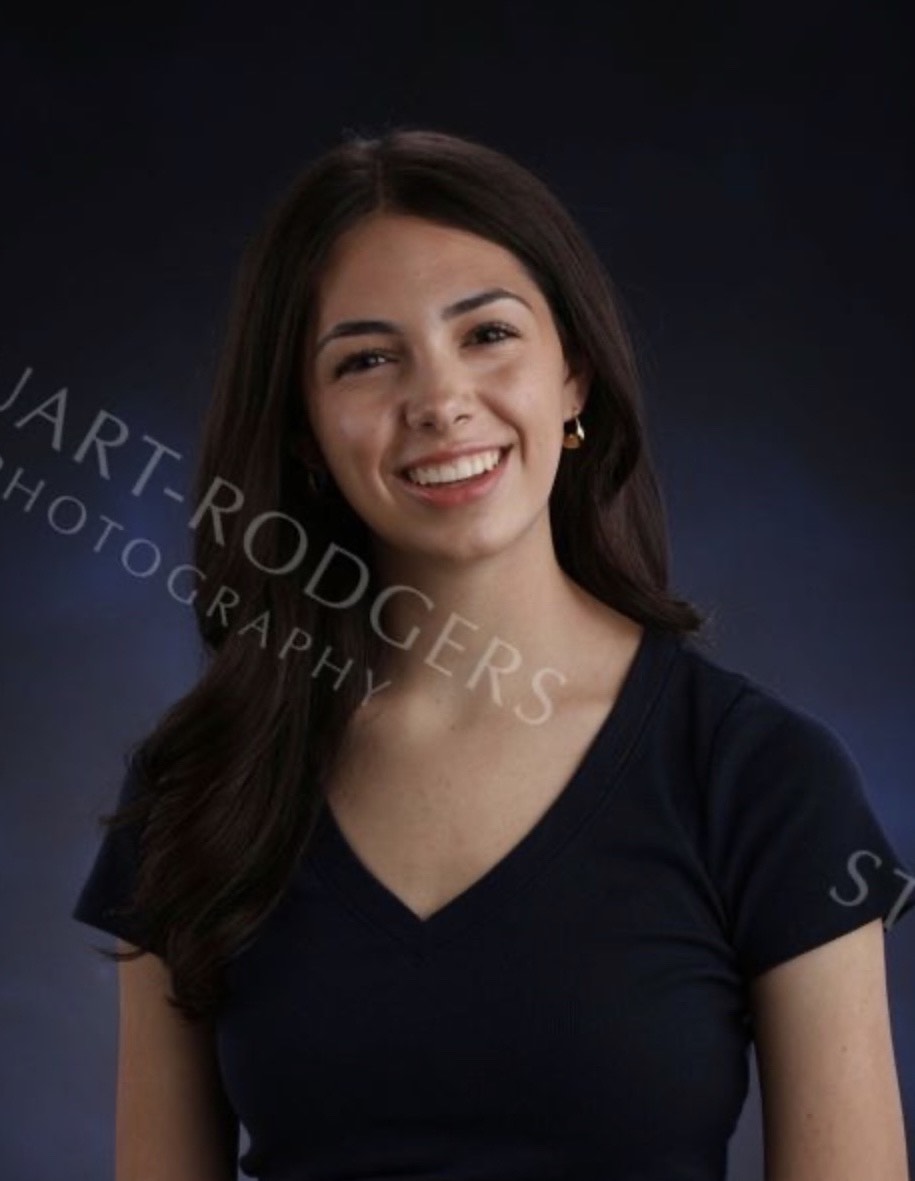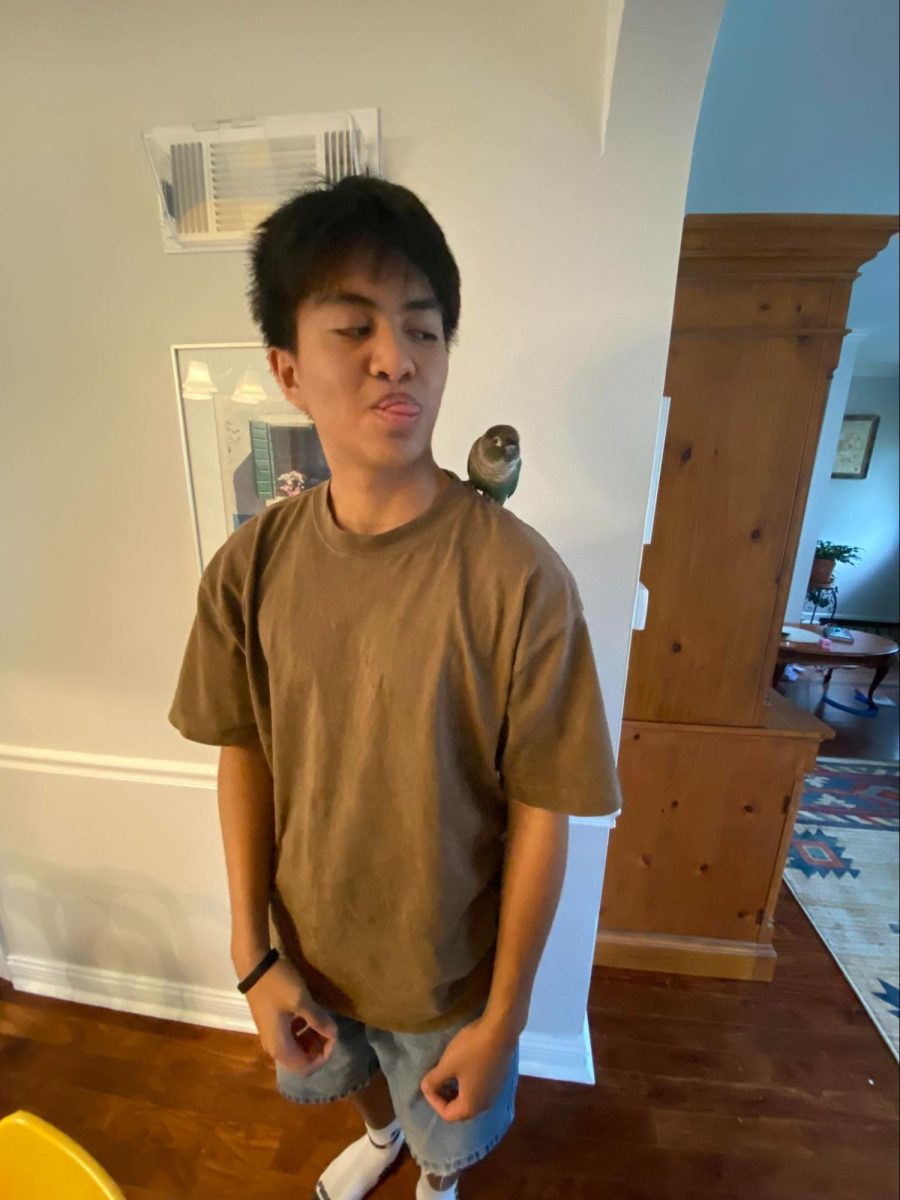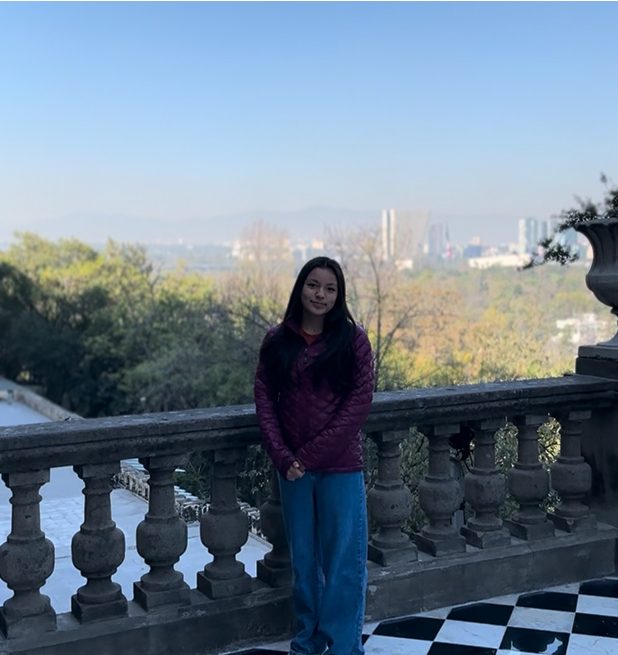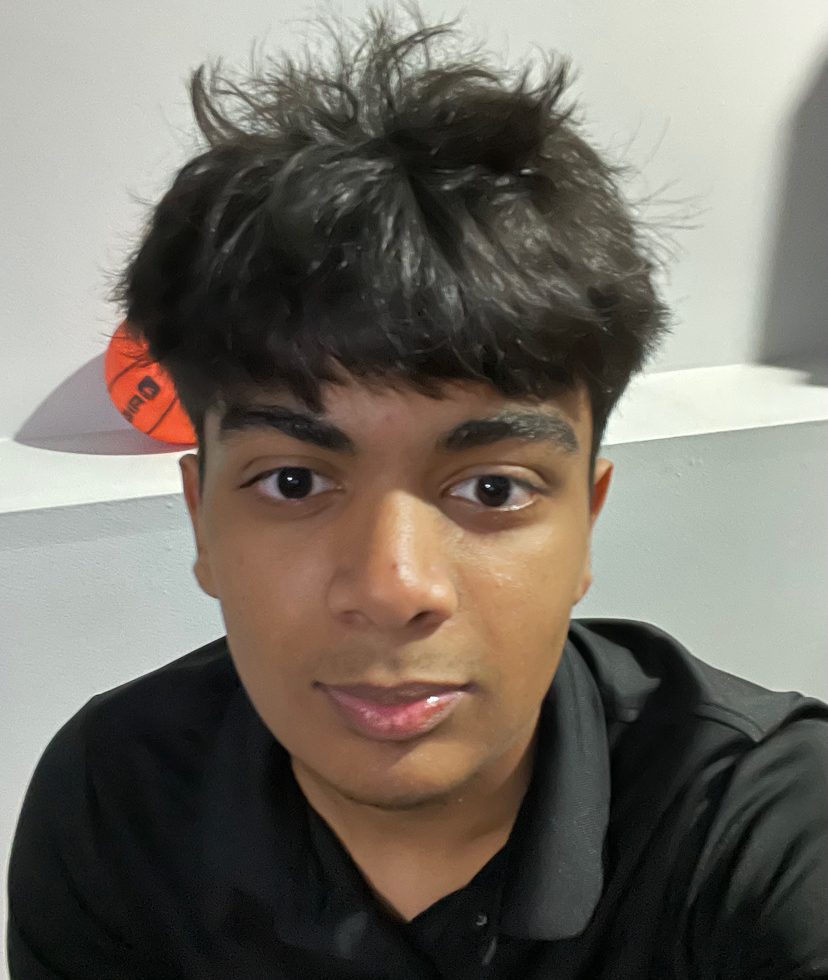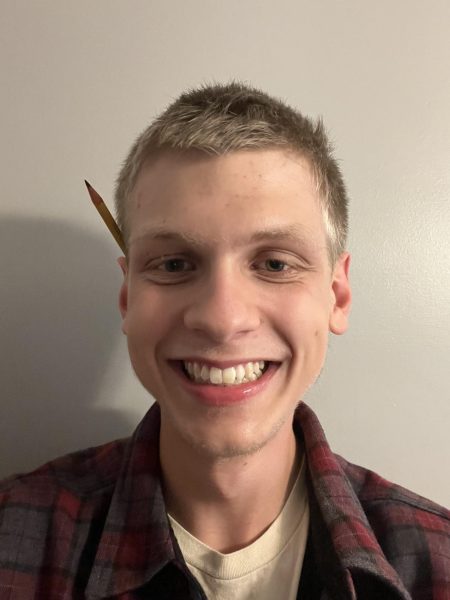Could you tell us your name, your year in school, and your pronouns? My name is Ella Sorkin; I am a senior, and I use she/her pronouns.
How did you get started in theater? I started doing theater in elementary school. One of my friends was auditioning for a local kids’ community theater, and I wanted to try it, and so I did, and I’ve been involved with it ever since. Before high school, I did it mostly outside of school at community theaters, and then since being at Niles North, I’m heavily involved in theater here now. But I got started just through community theater… I did dance growing up, and so it wasn’t like performing was totally new to me, but it was the first time I’d ever done theater.
What does it feel like for you to be onstage? It’s a whole mix of emotions. There’s obviously nerves, and that never goes away. I feel like when I’m onstage, I just do my best to focus as much as I can and ignore everything going on around me. I ignore looking at the audience, ignore whatever’s going on in my life, in school—any homework I have can be thought about later. And so it feels like stepping outside of everything else going on in my life and just focusing on the story, which is a really cool creative outlet. It’s a great escape.
And now, of course, you’re Thespian Board President—what led you to want to run? Theater at Niles North is such a unique and tightly-knit community. It’s really a special place. There are a lot of opportunities for leadership, and that’s both in an unofficial position—like, if you’re playing a bigger role, that’s a leadership position. If you’re in Director’s Circle, that’s a leadership position. But I wanted to do something to help give back to the community and help outreach and develop events and things like that, and all the things that theater board does to try to keep the community strong, because it’s a community that’s been really important to me for all of high school.
What do you feel like you have gotten from that community? Like I said, theater has been an amazing creative outlet for me. It’s where I’ve met some of my best friends in the entire world. It’s where I’ve discovered what kinds of things interest me not just in the arts, but it helped me to realize that I really like studying literature and English, and I’m about to go to be an English major, so it sort of helped me on that path too. And it’s, you know, opportunities to not just practice public speaking, but to gain confidence and develop your skills. I think theater, as an art form, is a really good way to develop an understanding of different perspectives. It’s a good way to develop empathy, and I think that’s really important. It’s given me so much… I feel like I’d be a totally different person without it.
You’re also recently back from the ILMEA competition in Peoria. What was that like? It was really cool. It was my second year going to the All-State conference. It’s not so much a competition as it is–I think I’d probably call it a convention. Essentially, the way it works is that students in band, choir or orchestra send in auditions at the beginning of the year, and they audition for their district ensembles. If you’re accepted into the district ensembles, you perform with the top-scoring students from the district. If you were among the higher scorers in the district, then you go to All-State, and so I was in the All-State Honors senior chorus for the second year in a row. It was a really cool experience. We get to sing with a choir of almost 300 kids, which is insane. Niles North choir is amazing, but singing in a choir of 20 or 40 versus singing in a choir of 300—I mean, there’s really no comparison. It’s like an out-of-body experience to hear that many people around you. And our directors, both years, have been so insightful, and I’ve just learned a lot from them. It was a really, really good experience.
You’ve also been doing flute since fourth grade, especially in high school. What’s it like balancing both [flute and choir]? It’s funny — I think the best example I can give is at the collage concerts, when you have to perform in both band and choir. There was one year when, basically, I’m running around for the whole concert — as are many of the other students who are involved in multiple ensembles, I’m not in a unique situation by any means — but trying to figure out where to put my instrument so that it’s where I need it to be during band, but then also where I can put it when I have to sing without it. But it’s definitely manageable.
You mentioned that you wanted to study English. Do you know what you want to do after that? I have some ideas. I don’t have one particular thing that I know I want to do, but I have a decent idea of things I don’t want to do, and so that sort of helps narrow it down. I’m thinking about a number of different paths. I’ve thought about going into law; I thought about going into journalism; I thought about going into teaching, but I’m still kind of figuring it out. English is both what I want to study and a really good starting point for a lot of the things I think I might want to do.
If you could design your own AP class, which one would you create? This is going to be so on-brand for me: I want an AP Theater History class… I don’t know if I’m the right person to design the class[, though].


